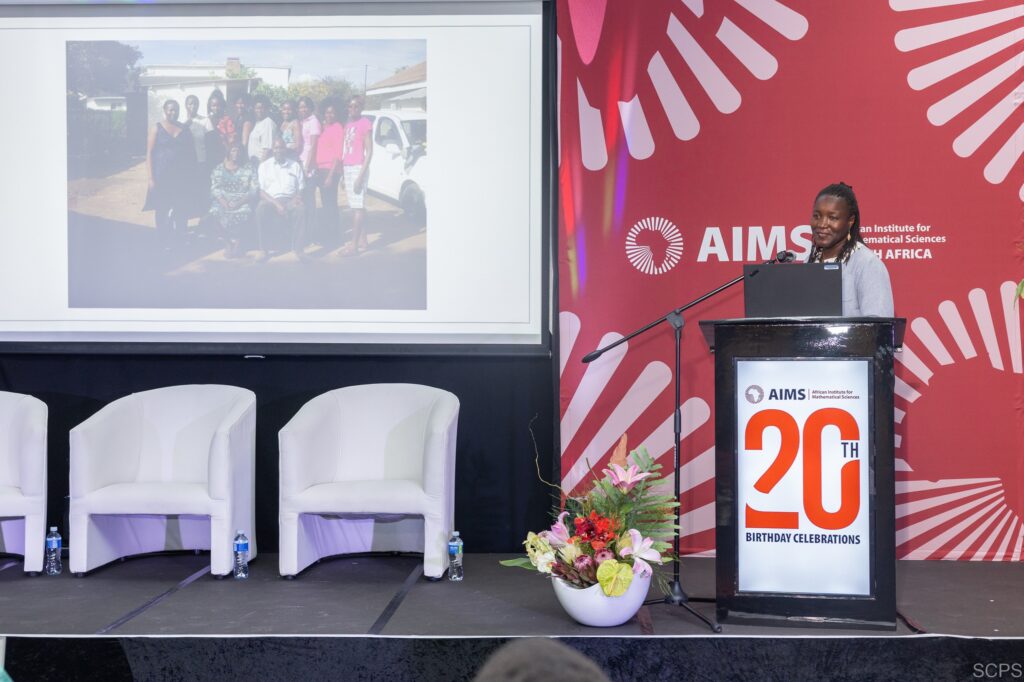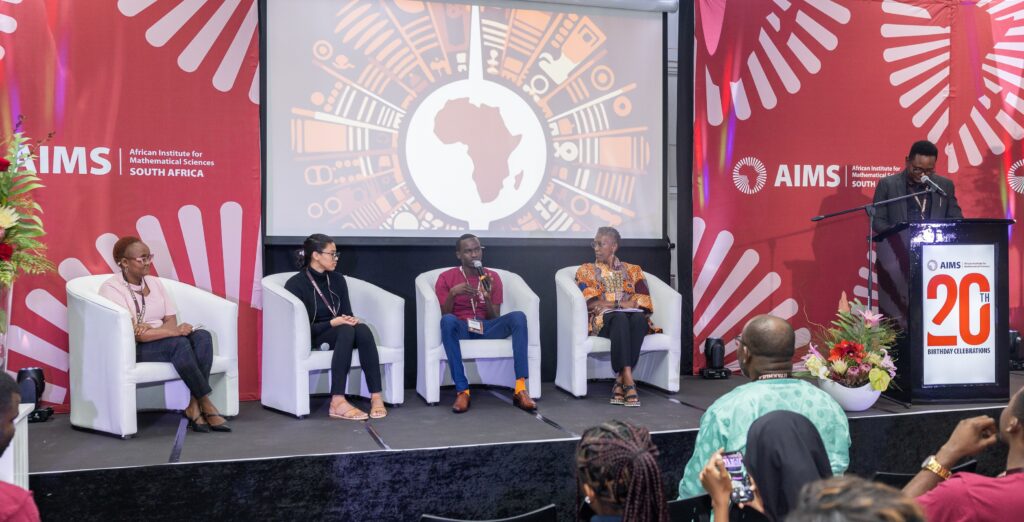The second day of the Siyakhula Festival continued to weave a narrative of empowerment, innovation, and collaboration, emphasising AIMS’s vital role in shaping the future of mathematics and science in Africa.
The proceedings began with the “AIMS Stakeholders Engagement: The Future of AIMS,” panel discussions, which spotlighted AIMS’s formidable achievements in graduating over 3,000 Master’s students in Mathematical Sciences. This vital conversation involved representatives from the MasterCard Foundation, Imperial College London, Heidelberg University, and the German Research Foundation, focusing on the expansion of AIMS’ partnerships and the need for increased support from African governments. The discussion envisioned AIMS as an essential cornerstone for advancing STEM education and research throughout the continent.
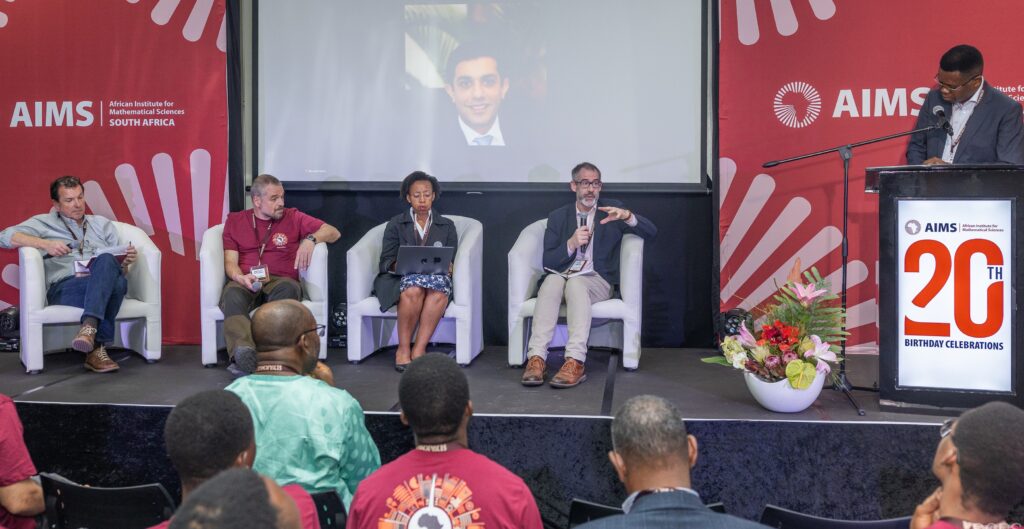
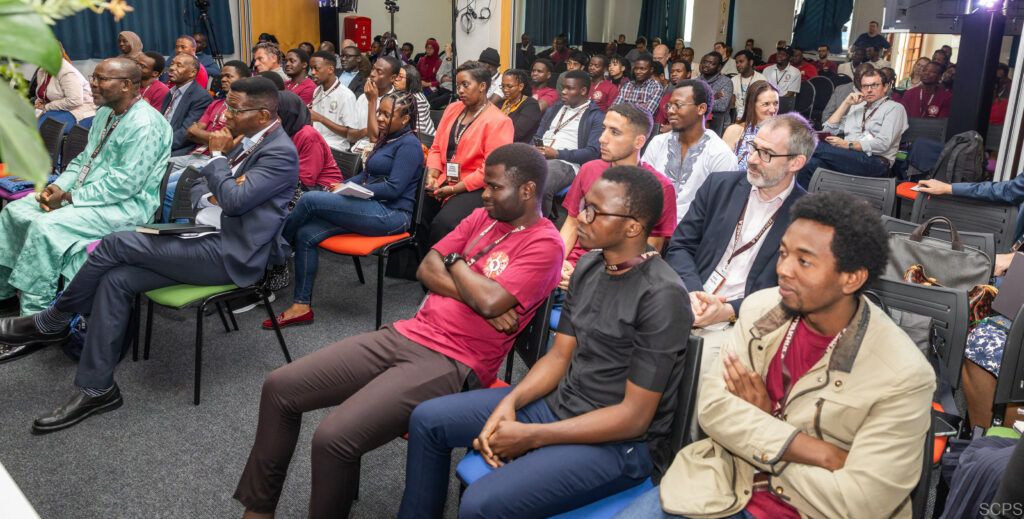
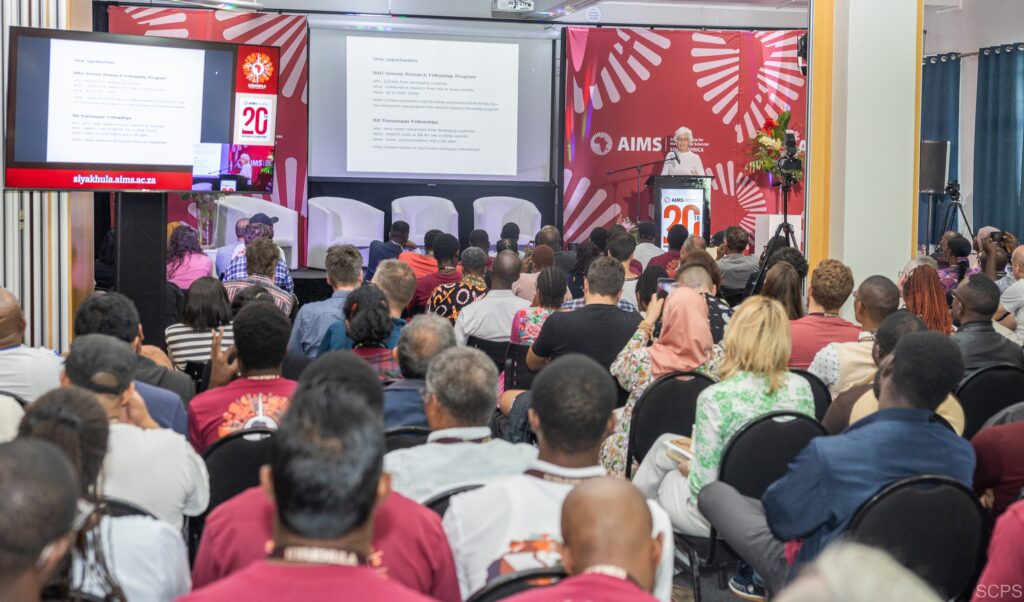
Following these discussions, Prof. Ulrike Tillmann from the Isaac Newton Institute, Cambridge/Oxford, presented her keynote on “Seeing Data Through the Eyes of a Topologist.” Prof. Tillmann offered an engaging introduction to topological data analysis, a field providing new methods and insights for understanding complex data. With a focus on multi-parameter persistent homology, her talk addressed theoretical challenges and explored applications, enriching the festival’s discourse with innovative mathematical approaches to data analysis.
The day’s conversations then pivoted to “The Future of AI and Africa,” led by Prof. Ulrich Paquet from AIMS South Africa. This session explored the transformative impact of AI on education and community-driven research across the continent. Highlights included insights from Obum Ekeke MBE of Google DeepMind on “AI, Education, and Google DeepMind,” and Jade Abbott from Lelapa AI & Masakhane on “Community-driven Research Across Africa: Lessons Learned from Masakhane.” These discussions illuminated the strides being made in AI to address uniquely African challenges, emphasising community-led initiatives and the democratisation of AI knowledge through grassroots movements, as highlighted by Prof. Paquet’s talk on “Deep Learning Indaba and Grassroots Growth.” Paul Kennedy from Zindi wrapped up the AI discussions by focusing on “Enabling AI Talent in Africa,” emphasising the creation of platforms for African AI practitioners and innovators.
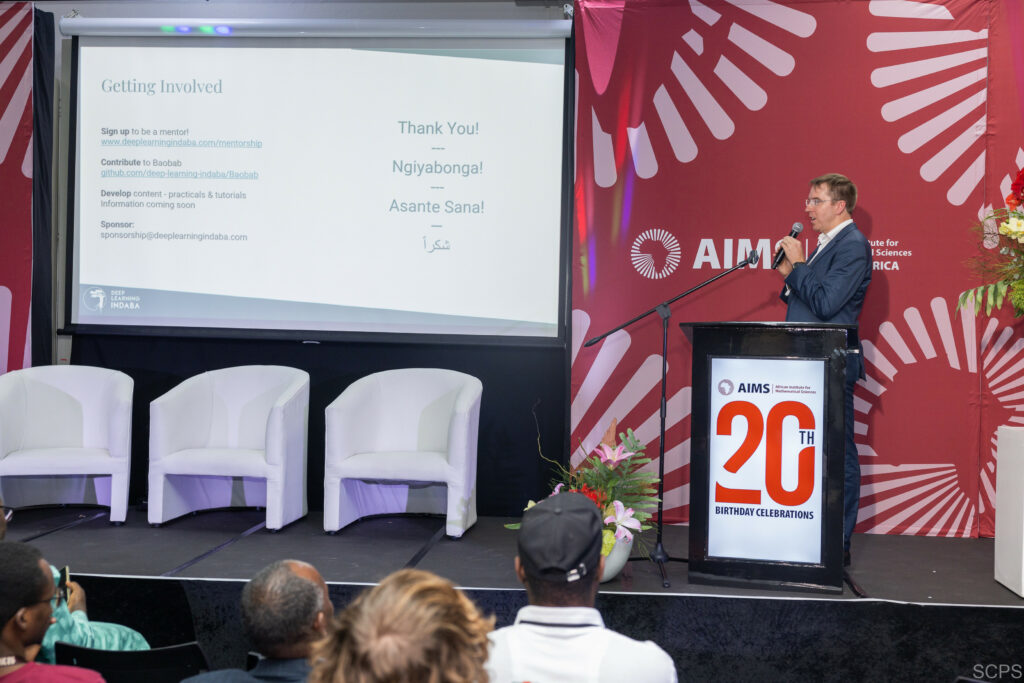
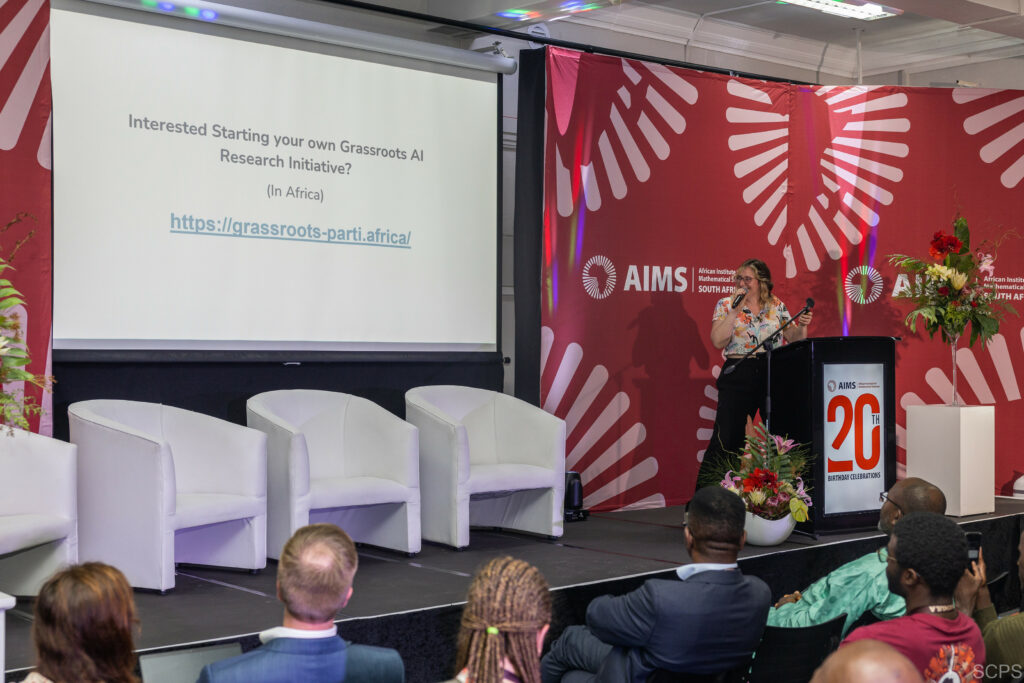
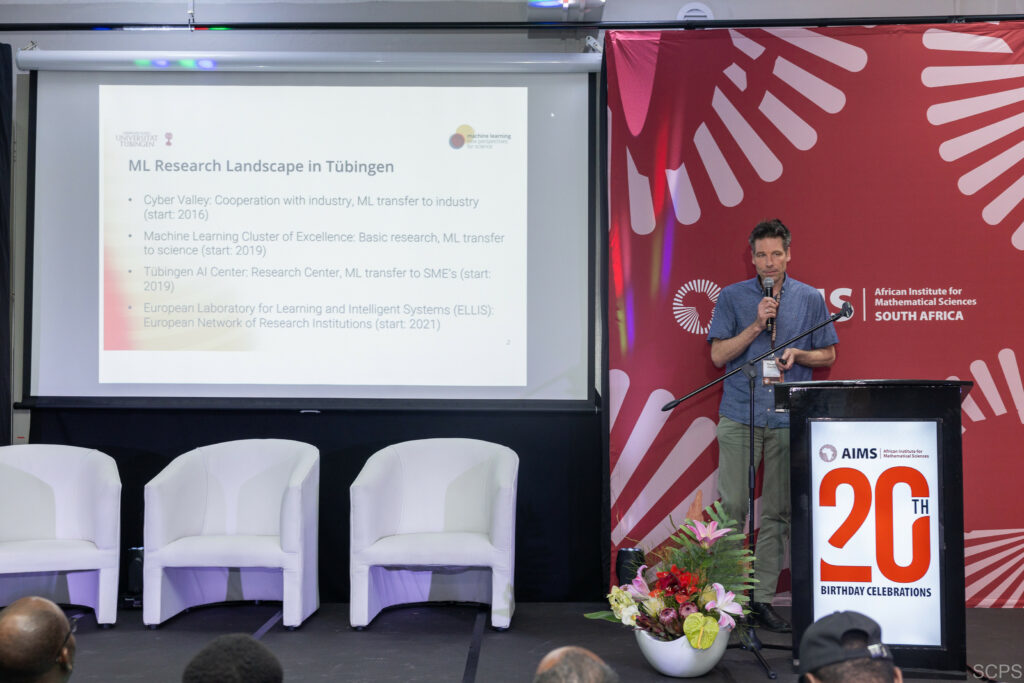
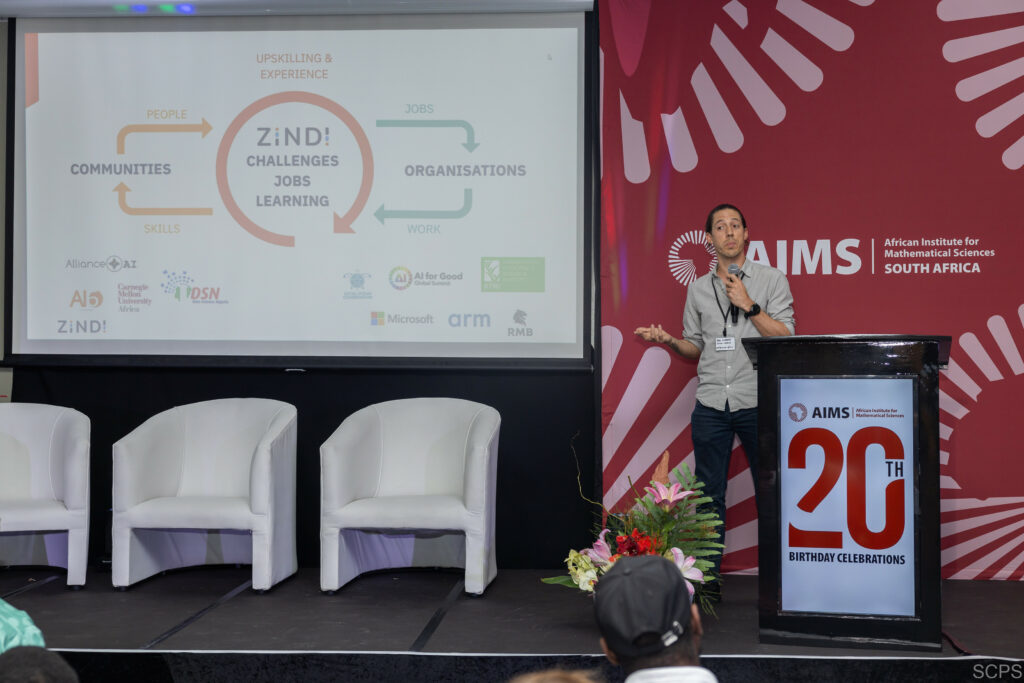
The day also featured an inspiring session with Dr Tendai Mugwagwa, an AIMS alumnus from the 2003-2004 cohort, who has risen to become the Director of Value & Evidence at Pfizer Inc. She shared insights into how her mathematical background has been essential in improving access to crucial medicines and vaccines, reflecting the profound impact of AIMS’s educational programs. Dr Mugwagwa highlighted the significant contributions made by African scientists, especially women in STEM, in transforming health policies and significantly contributing to societal well-being. This session not only celebrated the achievements of AIMS alumni but also offered valuable strategies for navigating and excelling in STEM fields, illustrating the vital role of continued education, research, and collaboration in fostering the next generation of leaders in science and technology.
The second day of the Siyakhula Festival vividly underscored AIMS’s significant contributions to scientific and mathematical pursuits across Africa. Through a series of engaging talks, including Prof. Tillmann’s insightful presentation and Dr Mugwagwa’s compelling story, the day highlighted the critical need for continued investment in education, research, and cooperative efforts to foster the next generation of leaders in science and technology.
